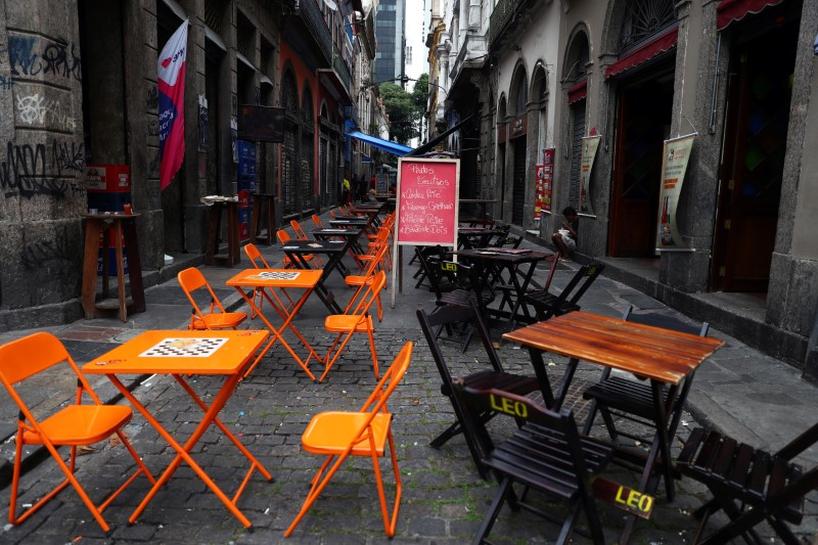BRASILIA/SAO PAULO, (Reuters) – Brazil declared a state of emergency today, freeing up funds for the federal government to fight a coronavirus crisis that has hurt the popularity of far-right President Jair Bolsonaro’s government.
The Senate approved a measure letting the government waive fiscal targets this year, with senators voting remotely after two of them tested positive for the virus causing the COVID-19 respiratory disease.
Bolsonaro is facing criticism as he seeks to balance major public health concerns with protecting Brazil’s long-ailing economy. The pandemic poses serious political risks for the populist, who initially labeled it a “fantasy.”
In comments to journalists on Friday, he slammed state governors for taking “extreme measures” that hurt the economy.
Sao Paulo state Governor João Doria said a statewide public emergency would go into force on Saturday, aimed at allowing the government to better fight the virus. All parks and non-essential public services will close until the end of April.
Doria defended the move and criticized Bolsonaro.
“We’re doing what he’s not doing,” Doria said. “And when he does do it, he does it wrong.”
Approval of Bolsonaro’s government fell to a record low this week, according to XP Investimentos poll released on Friday. Just 30% of those surveyed rated his administration “good” or “great,” compared with 36% calling it “bad” or “awful.”
A record-high 17% said his government is to blame for the current economic situation, as blame attached to the previous three administrations slowly evaporates, the poll showed.
Many Brazilians have been drumming pots and pans in their homes nightly in a traditional protest against Bolsonaro, who ignored medical advice to meet crowds of supporters on Sunday despite having several aides diagnosed with virus.
Bolsonaro said he expected June, a winter month in the southern hemisphere nation, to be the most critical period for the coronavirus outbreak. At least seven people have died thus far, with over 600 cases confirmed – doubling in two days.
Bolsonaro has banned entry for citizens from China and the European Union, but has held back from closing international airports as Latin American neighbors Colombia, Peru, Argentina and Venezuela have done.
The president blamed state governors on Friday for the economic impact of the virus. Brazil’s currency and stock market were among the world’s biggest losers over the past two weeks.
“(Governors) are taking extreme measures that aren’t in their purview … commerce stops and people don’t have anything to eat,” he told reporters outside his official residence, “The medicine has to be proportional (to the illness), or it kills.”
Rio Governor Wilson Witzel on Thursday said he would cancel all international flights in and out of the state, as well as domestic flights to Brazilian states with coronavirus cases.
But airlines and federal regulators said he does not have the power to do it. Infrastructure Minister Tarciso Freitas said the federal government will not close airports and bus stations.
“We can’t enter into a state of panic,” Bolsonaro said.
The president also looked to defuse a diplomatic spat with No.1 trading partner China that began when his son, lawmaker Eduardo Bolsonaro, accused the Asian country of covering-up the outbreak.










